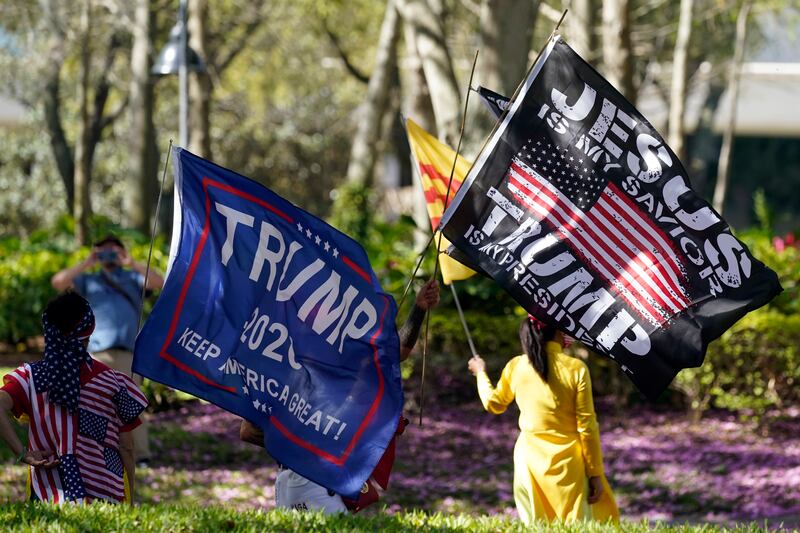In a time of deep political division in the United States, it may seem counterintuitive to hope for a third party. Surely, that would divide us even further, wouldn’t it? I think not. A third party may be just the antidote to our current situation.
Political pundits talk about divided government, where the presidency is occupied by one of the two national parties while one or both houses of Congress are controlled by the other. This situation produces, depending on your political persuasion, either healthy checks and balances or gridlock.
In recent years, it has been a pattern that the party of the winner of the presidential election also controls Congress, but this advantage is historically reversed by the midterm elections. The result is that a president can have his agenda supported by Congress for half of his tenure. While not able to enact his agenda by legislation, he often resorts to rule by executive order or by using a short-lived and slim majority in the two houses to muscle through his own agenda.
Congress is demonstratively dysfunctional. With the election of members from the extreme factions of each party in recent years, and the biannual turnover of majorities by slim margins, many voters suffer from political whiplash from riding this roller coaster. And yet, most Americans consider themselves to be moderates or independents and do not subscribe to the extremes of either party.
Congress needs to return to its historic role as a deliberative body, passing laws after careful consideration and, yes, by that dirty word: “compromise.”
When I prescribe a third party, I am not asking for another fringe party with a narrow agenda and constituency. I envision a party supported by moderate American voters, who will elect a few — maybe only 10 — senators, and a proportional number, 40 to 50, in the House. I would not expect this new party to win a presidential election; that should not be its goal.
The elected members of this new party should come from existing senators and representatives. In the House, they would be Democrats who identify with the Blue Dog Coalition. They should attract other moderates in the House from both parties, including those Republicans who defied President Donald Trump in the second impeachment attempt. Likewise, Republican senators in Trump’s crosshairs, plus a few more moderate Democrats and Republican senators, would become the backbone of this new party. I expect that many moderate citizens would gladly run for office on a new ticket come the next election.
The most important thing to remember is this: A majority is not needed to influence change. There is currently no majority in the Senate; the count is 50/50. Take away a few members from each party and each would be obligated to seek votes from the middle minority. They could influence Senate rules, leadership elections, committee appointments, and, of course, legislation. This would be done by the new party demanding good faith and fair-minded compromises. Their influence would likely attract all but the radical fringes of each party to come to the middle on important issues.
The same could happen in the House. The middle members could lead a way out of the budget quagmire by making it clear that they will no longer accept continuing resolutions as a substitute for deliberate and thoughtful long-term budget plans.
The new party members in both houses should lead a restoration of Article I powers by limiting the number and scope of executive orders and reminding the president of his role.
George Washington’s Farewell Address, on Sept. 17, 1796, warned of the danger of parties:
“(Parties) may now and then answer popular ends, (however) they are likely in the course of time and things, to become potent engines, by which cunning, ambitious, and unprincipled men will be enabled to subvert the power of the people and to usurp for themselves the reins of government, destroying afterwards the very engines which have lifted them to unjust domination.”
By then John Adams, Washington’s vice president and soon to become our next president, and Thomas Jefferson, secretary of state and the third president, had already begun to lead factions with opposing views. Adams was the Federalist nominee for president and Jefferson led the opposition for the Democratic-Republican Party. These factions over time have changed their names, as their principles and agendas have evolved to become the two main parties today.
Despite Washington’s warning, parties are useful instruments in our national electoral processes; they do “answer popular ends.” But they are fast becoming “potent engines,” usurpers of power for its own sake, and not for the good of the people.
My wished-for third party has potential for putting our nation back on course by functioning as the honest broker between the elected officials of two major parties who have forgotten our long history of principled compromise. Will anyone step up to lead a national exit from the status quo? Or are our leaders too much invested in protecting their own status and position?
Max J. Evans is the former director of the Utah State Historical Society.


